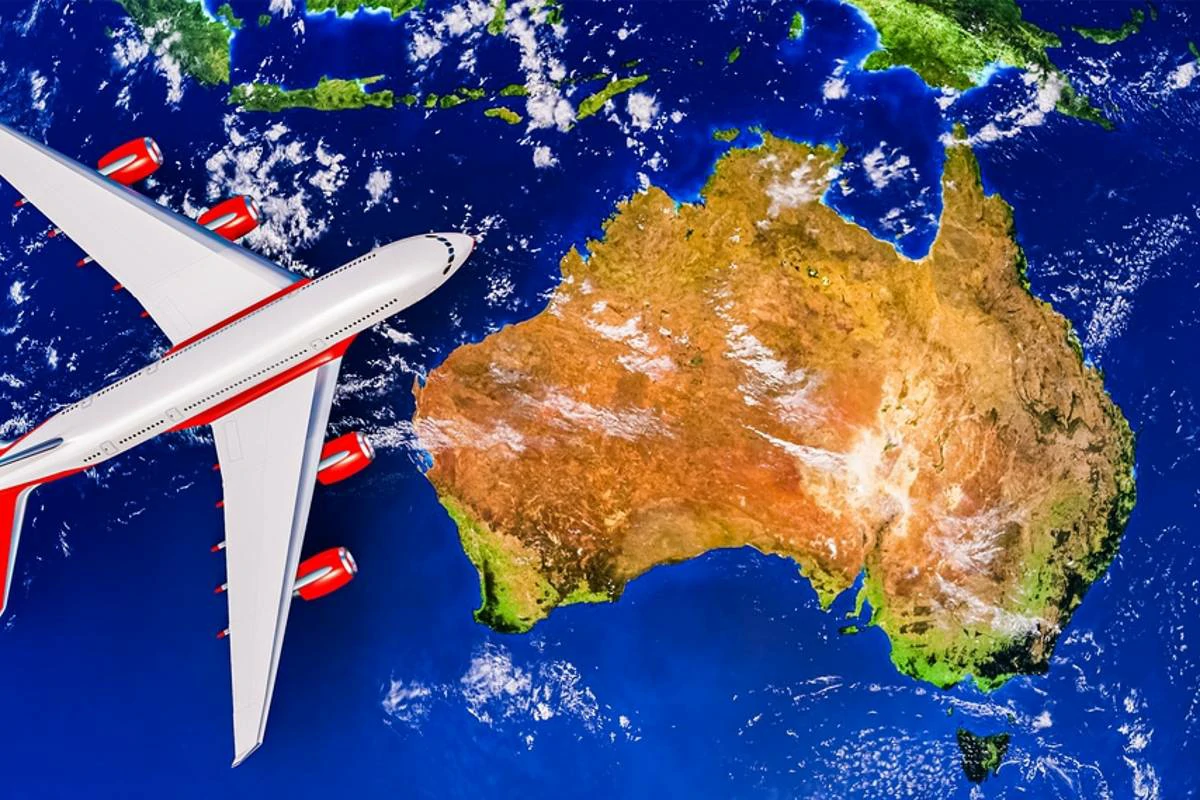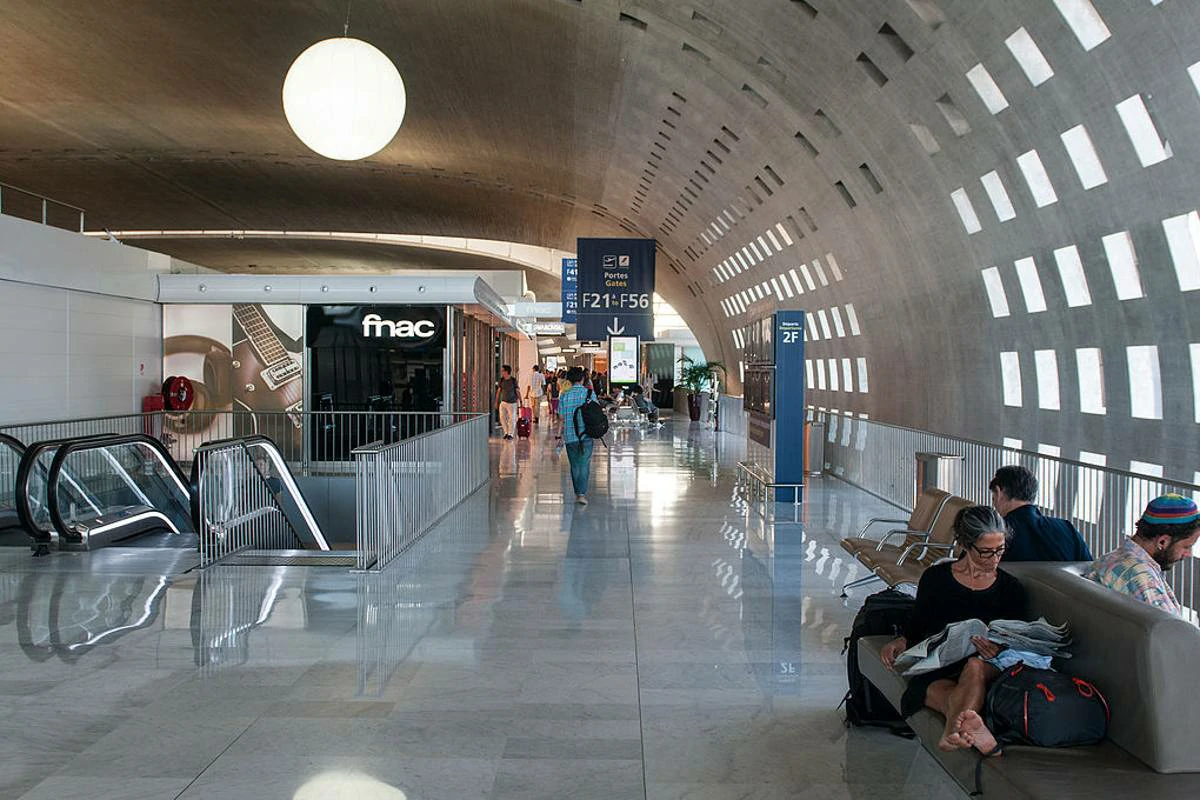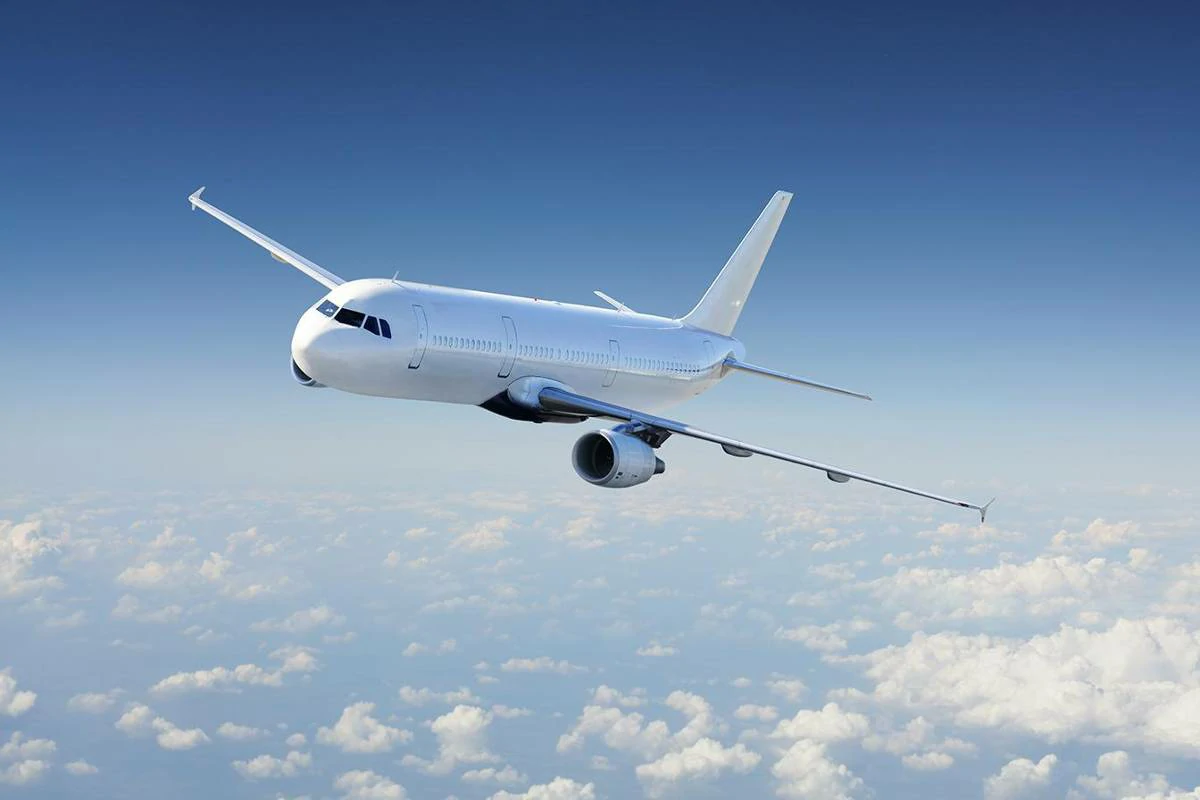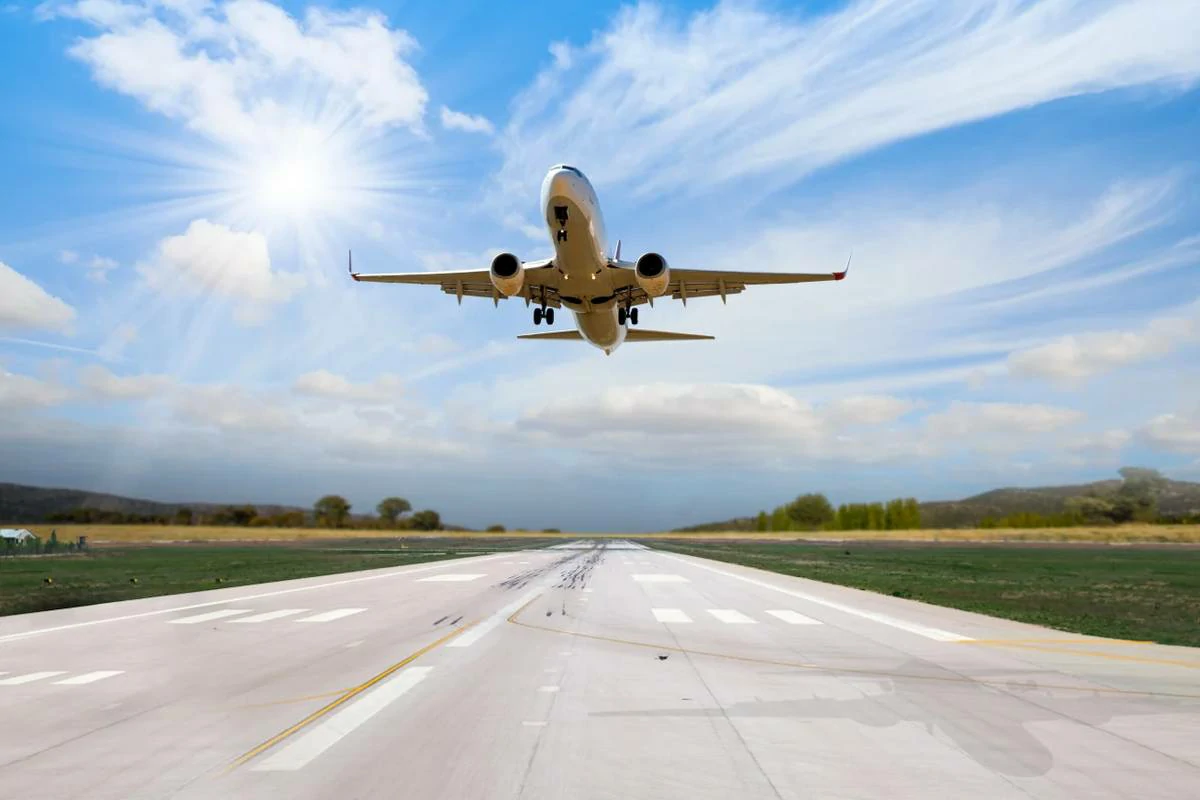If My Flight is Delayed, Should I Still Go to the Airport? Answer is – Yes, you should still go to the airport even if your flight is delayed. Delays are unpredictable and can change quickly. Airlines often maintain original check-in times, and you don’t want to risk missing your flight if the delay shortens or is resolved entirely. Being at the airport allows you to stay updated on the situation, rebook if necessary, and explore options like standby for earlier departures.
Summary
- Flight delays are common and can be caused by numerous factors (weather, mechanical issues, etc.).
- Delays listed on airline apps or websites are estimates and subject to change.
- Airlines may not hold a delayed flight for late passengers.
- Being at the airport allows you to monitor the situation and proactively seek alternative flights if options arise.
If My Flight is Delayed, Should I Still Go to the Airport

Understanding Flight Delays
Air travel, for all its convenience and speed, can be frustrating when plans are disrupted by the dreaded flight delay. Unfortunately, delays are a relatively common aspect of flying.
Understanding their causes and how to navigate them can significantly reduce the stress of unexpected changes to your travel itinerary.
Why Do Flights Get Delayed?
Flight delays stem from a multitude of factors, some controllable and others entirely outside the airline’s hands. Here are some of the most common culprits:
Weather: Adverse weather conditions, such as thunderstorms, heavy rain, snow, fog, and even extreme heat, are frequent causes for flight delays. Airlines prioritize safety, grounding or rerouting planes to avoid dangerous situations. National Oceanic and Atmospheric Administration (NOAA) data confirms that weather is a major factor in airline disruptions.
Mechanical Issues: Aircraft are complex machines, and technical problems can arise unexpectedly. From minor malfunctions to significant repairs, mechanical issues necessitate a delay until technicians assure the airplane is safe to fly.
Air Traffic Congestion: Airports and airspaces have capacity limits. During peak travel periods, heavy air traffic leads to flight delays as planes wait for takeoff clearance or landing slots. The Federal Aviation Administration (FAA) carefully manages air traffic flow to ensure safety. You can often track flight congestion live on sites like FlightAware.
Crew Scheduling Issues: Flight crews are subject to strict regulations regarding work and rest hours. Unforeseen events like a crew member falling ill or exceeding maximum duty time can lead to delays while a replacement crew is sourced.
Late-Arriving Aircraft: If your incoming plane is delayed on a previous route, it’ll cause a knock-on effect for your departure time. This is especially common for airlines using a tight schedule with limited turnaround times between flights.
Security Issues: While less frequent, security concerns ranging from additional passenger screening to unruly passengers can result in flight delays.
Robert Mann Expert Opinion
“Flight delays are a complex interplay between weather, technology, and operational factors. To mitigate the impact, airlines work tirelessly to build in flexibility and redundancies into their systems.” – Robert Mann, Airline Industry Analyst and Consultant
Should I Still Go to the Airport if My Flight is Delayed?

The answer is a resounding yes. It might seem tempting to stay home when you receive that dreaded “Flight Delayed” notification, but heading to the airport is always the best course of action for several reasons.
Why You Should Go to the Airport
1. Delays are unpredictable
Estimated delay times provided by airlines are just that – estimates.
Mechanical issues may be resolved faster than anticipated, favorable weather shifts can occur, or a replacement crew might be found sooner than expected.
Being at the airport ensures you don’t miss your flight if the situation improves unexpectedly.
2. Airlines may not hold the flight
While airlines do try to accommodate delayed passengers, they are under no obligation to hold a flight indefinitely.
Factors like tight connecting schedules, gate availability, and crew duty limitations influence decisions about when to close the aircraft doors.
If you’re not at the airport and ready to board, you risk losing your seat.
3. Exploring rebooking options
Being physically present at the airport gives you more leverage and flexibility for exploring alternative solutions.
Speak directly to airline representatives at the ticket counter or gate for the latest information on your flight and the potential for being rebooked to an earlier departure.
Sometimes, even online systems might not reflect all the options available to in-person passengers.
Sarah Bennett Expert Opinion
“Even with a significant delay, being at the airport puts you in a position to advocate for yourself. You can speak face-to-face with airline staff, explore standby options, and stay updated on the constantly evolving situation, ” – Sarah Bennett, Travel Blogger
What to Do at the Airport During a Delay

Flight delays can be a frustrating test of patience, but with a bit of planning and a proactive approach, you can navigate them and even turn the unexpected wait into a manageable–or even enjoyable–part of your journey.
Actions to Take Immediately
1. Check with your airline representative
Your first port of call should be speaking directly to an airline representative at the ticketing counter or at your departure gate.
They’ll have the most up-to-date information on the estimated delay duration, the reason for the delay, and any potential rebooking options available to you.
2. Monitor flight status boards
Keep a close eye on the airport’s flight status boards. These usually display the most current information about delays, cancellations, and gate changes.
Even if you’ve already spoken to a representative, these boards provide an easy way to visually monitor the situation for any changes.
Ways to Pass the Time
1. Explore food and beverage options
Long delays can lead to hunger pangs and weariness. Take the opportunity to explore the airport’s dining options.
Grab a sit-down meal, enjoy a quick snack, or relax with a coffee to refuel. Keep in mind that airport prices tend to be higher than outside.
2. Utilize airport amenities (lounges, etc.)
If you have access to airport lounges, whether through a specific airline, credit card perk, or a purchased day-pass, take advantage of them.
Lounges offer a quieter, more comfortable space to relax, along with complimentary snacks, drinks, Wi-Fi, and sometimes even showers.
If you don’t have lounge access, look for designated quiet areas or charging stations to power up your devices and make yourself comfortable.
3. Stay informed about weather conditions
If your delay is weather-related, staying informed is key. Download a reliable weather app like AccuWeather or Weather Underground.
Monitoring weather trends in your departure and arrival cities helps you anticipate potential changes to your flight schedule.
Lisa Allen Expert Opinion
“Airport delays aren’t always about just waiting; it’s about what you choose to do with that time. A proactive approach and resourceful mindset can turn an otherwise stressful situation into an opportunity to relax, recharge, or explore the airport.” – Lisa Allen, Travel Consultant
What Does a Flight Delay Mean for Passengers?

Flight delays are more than just a waiting game at the airport. They can have a ripple effect on your entire trip, leading to missed connections, unplanned expenses, and significant disruptions that can derail even the best-laid travel plans.
Here’s a breakdown of the potential consequences:
1. Potential Missed Connections
If you have a connecting flight, a delay to your first flight puts you at risk of missing the onward journey. Tight connection windows, particularly in the case of international travel, leave little room for error.
When your first flight is delayed, it often creates a domino effect that can throw your entire itinerary off course.
The Impact: Missing a connecting flight due to a delay could mean waiting hours for the next available flight. In some cases, airlines will try to rebook you, but this could involve overnight stays, significantly lengthier routes, or even having to purchase a new ticket altogether.
2. Incurring Additional Expenses
Unexpected delays can put a strain on your travel budget. Here’s how:
Food and Drinks: With long waits at the airport, you may have to purchase meals or snacks that weren’t factored into your original budget. Airport prices tend to be higher than average, further eating into your spending money.
Accommodation: Significant delays, especially those that extend overnight, might necessitate an unplanned hotel stay near the airport. This additional expenditure can put significant stress on a tightly planned budget.
Rebooking Fees: While some airlines will rebook passengers affected by delays onto earlier or alternative flights without a fee, others may charge rebooking fees, particularly if it involves changing your fare class or ticket type.
Ground Transportation: Missed connections or a new arrival airport may require additional spending on taxis, rideshares, or public transport to reach your intended destination.
3. Disruptions in Travel Plans
Beyond the financial implications, flight delays can disrupt carefully planned travel schedules in numerous ways:
Missed Tours or Events: If you were traveling for a specific event, tour, or performance, delays might lead to missing them partially or entirely.
Delayed Arrival to Destination: Even minor delays can cut into valuable vacation time or delay important meetings if you’re traveling for work.
Impact on Travel Companions: If you’re traveling with others, a delay can create a ripple effect on their plans as well, necessitating itinerary changes and adding stress to their travel experience.
Increased Stress and Disappointment: Unexpected delays can be mentally and emotionally taxing, leading to travel fatigue, disappointment, and increased stress levels for all those involved.
Brian Kelly Expert Opinion
“Flight delays can be costly, not only in terms of your wallet but also in terms of your time and enjoyment. It’s crucial to understand that these disruptions are a possibility and to prepare yourself mentally and financially to deal with them,” – Brian Kelly, Founder and CEO of The Points Guy
Tips for Managing Flight Delays

Flight delays can throw a wrench into the best-laid travel plans. However, with a bit of preparation and knowledge, you can navigate these unexpected situations like a seasoned traveler.
Here are some essential tips to help you manage delays with less stress and greater efficiency:
1. Purchase Travel Insurance
Travel insurance is your safety net when unexpected delays cause financial setbacks. Look for a comprehensive policy that includes the following coverage aspects:
- Trip Delay: This coverage can reimburse you for eligible expenses incurred due to a covered delay, such as unplanned hotel stays, meals, and ground transportation.
- Trip Cancellation: If you need to cancel your trip entirely due to a covered delay or other unforeseen events, this coverage can help recoup non-refundable travel costs.
- Missed Connections: Some policies offer specific protection for missed connections, helping to cover the costs involved in rebooking or finding alternative transportation.
When researching travel insurance, compare several providers to find the best policy for your needs. Reputable resources like Squaremouth allow you to compare quotes and coverage details across different insurers.
2. Choose Earlier Flights for Better Connections
Booking the earliest flight of the day can dramatically improve your odds of reaching your destination on time, even if delays do occur. Here’s why:
- Recovery Time: Early flights have more leeway for rescheduling and recovery throughout the rest of the day. Delays encountered later in the day have a greater ripple effect on the airline’s overall operations.
- Aircraft Availability: Flights later in the day are more vulnerable to delays caused by aircraft arriving late from previous routes. The initial flights of the day are less likely to encounter these knock-on effects.
Of course, this strategy depends on your personal schedule and travel origin. If flying out early requires an airport hotel stay the night before, weigh the cost versus the potential saved expenses and stress of a missed connection due to a delay.
3. Keep Essential Items in Carry-on Luggage
Smart packing is key to being prepared for a potential delay. Keep the following essentials in your carry-on bag:
- Medications: Ensure you have all necessary prescription and over-the-counter medications within easy reach.
- Change of Clothes: A spare t-shirt or comfortable change of clothes can make a significant difference if your delay extends overnight.
- Toiletries: Travel-sized toiletries, including a toothbrush, toothpaste, and face wipes, help maintain a sense of freshness.
- Chargers and Portable Battery Pack: Keep your phone, laptop, or other electronic devices powered up with essential chargers and a portable battery pack.
- Snacks: Pack non-perishable snacks like protein bars or nuts to combat hunger pangs during unexpected waits.
4. Download Your Airline’s App
Most major airlines have mobile apps that provide a wealth of real-time information and helpful tools. Download your airline’s app and explore its features. Key benefits include:
- Up-to-date Flight Notifications: Receive push notifications regarding any changes to your flight status, enabling you to react quickly and adjust your plans.
- Rebooking Options: Some airline apps allow you to explore rebooking options directly within the platform, helping you snag an available seat on an earlier flight if possible.
- Customer Service Access: Contact airline representatives through in-app chat or messaging features for quick assistance and clarification on specific questions.
Ashley Rossi Expert Opinion
“A little pre-trip planning goes a long way in minimizing the stress of flight delays. Travel insurance, smart flight selection, and strategic packing provide an empowered approach to navigating these disruptions.” – Ashley Rossi, Experienced Traveler and Founder of the blog, Tourist to Townie
Conclusion
Flight delays, while a common source of travel frustration, don’t have to completely derail your plans. Remember that with a bit of pre-trip preparation, proactive action, and a dose of patience, you can navigate these challenges like a seasoned traveler.
Key takeaways to remember:
- Be Informed: Understand the common causes of flight delays so you can mentally prepare for the possibility of encountering them.
- Go to the Airport: Even if your flight is significantly delayed, making your way to the airport allows you to stay updated and explore rebooking options.
- Prioritize Your Well-being: Take care of your physical and mental comfort during long waits by staying hydrated, finding nourishment, and utilizing airport amenities.
- Advocate for Yourself: Speak directly with airline representatives to explore solutions and inquire about potential rebooking or standby options.
- Have a Plan: Strategies like purchasing travel insurance, choosing early flights, and packing smartly all give you an advantage in managing unexpected travel disruptions.
FAQs
Q: Am I entitled to compensation if my flight is delayed?
Regulations regarding passenger compensation for flight delays vary depending on your location and the specific airline involved. In some cases, airlines may provide vouchers or meal allowances for significant delays, while other regions have more extensive passenger rights regarding financial compensation. Research your airline’s policies or check regulations governing your departure or arrival points for further details.
Q: Will the airline rebook me for free if my flight is significantly delayed?
Most airlines try to rebook passengers affected by delays onto the next available flight. This generally occurs without additional cost for delays that are considered within the airline’s control (mechanical issues, crew scheduling, etc.). However, airlines are not always obliged to provide compensation for delays caused by circumstances beyond their control, like severe weather.
Q: Are there apps to help me track my flight’s status or find alternatives?
Absolutely! In addition to your airline’s app, there are excellent standalone flight tracking apps:
- FlightAware: Provides real-time flight status updates, delay notifications, and airport maps.
- Flightradar24: A comprehensive flight-tracking platform that allows you to visualize planes in motion around the globe.
- App in the Air: This acts as your personal travel assistant, tracking your flights, managing itineraries, and even providing airport information.
Q: Can I switch to a different airline if my flight is delayed?
While theoretically possible, this is often a very complicated process in practice. If your delay is due to reasons within the airline’s control, they may try to reroute you onto a partner airline’s flight. However, initiating a switch on your own generally forfeits your existing ticket and requires you to purchase a new one from the other airline at likely significant expense.







